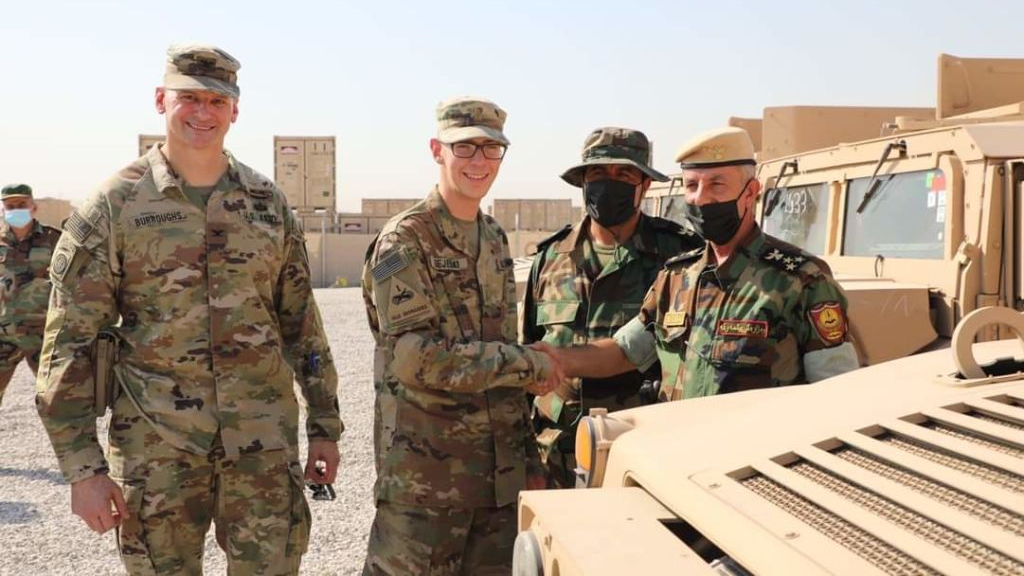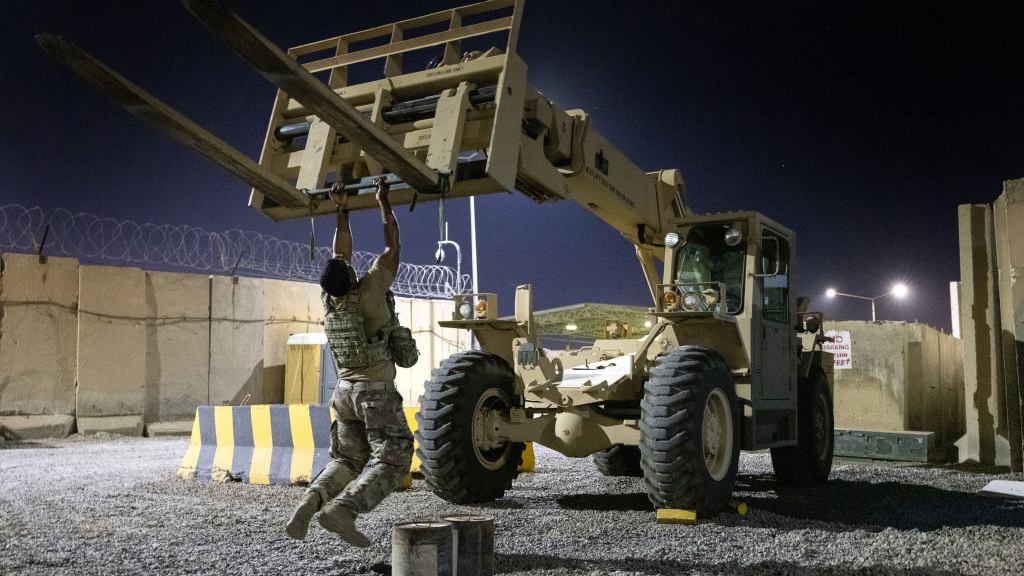
Soldiers are seen after the U.S.-led coalition against ISIL provided military vehicle assistance to the Peshmerga forces of Iraq's Kurdish Regional Government in Erbil, Iraq, July 26, 2021. /Getty
Soldiers are seen after the U.S.-led coalition against ISIL provided military vehicle assistance to the Peshmerga forces of Iraq's Kurdish Regional Government in Erbil, Iraq, July 26, 2021. /Getty
Editor's note: Thomas O. Falk is a London-based political analyst and commentator. He holds a Master of Arts in international relations from the University of Birmingham and specializes in U.S. affairs. The article reflects the author's opinions and not necessarily the views of CGTN.
Washington seeks to end its mission in Iraq and, in the future, focus entirely on training and advising Iraqi security forces. The announcement also marks the end of an epochal geopolitical quagmire. While the chapter may be over for the West, Iraq will continue to deal with the fallout of the 2003 invasion.
Given the U.S.'s domestic political priorities (i.e. COVID-19, infrastructure package), the news that 18 years after the invasion of Iraq, the U.S. is ending its mission was almost a side note. However, assessing Iraq and the modus operandi of exporting the Western model is a must if one is unwilling to repeat the mistakes made.
While the U.S. and its allies rather quickly toppled the Iraqi government, they never succeeded in establishing leadership that was respected at home and trusted abroad. Nonetheless, former U.S. President George W. Bush famously spoke of a "mission accomplished" aboard an aircraft carrier on May 1, 2003, and declared the combat mission over. In retrospect, it must be said that this moment was of the same premature ignorance that characterized the entire operation.
Barack Obama also announced the end of the U.S. troop presence in the country at the end of 2011 – but later, he had to change course when ISIL became a threat in the region.
Now, it is Joe Biden, who once again announces the end of the combat mission – though 2,500 men will be reassigned to training troops by the end of the year – they are supposed to strengthen the Iraqi army and the intelligence services.
The war's grim legacy will go down in history as one of America's most ill-advised decisions.
The lies about the alleged weapons of mass destruction, the idea that the fall of Saddam Hussein would change the entire region for the better, and the lack of planning for the post-Saddam Hussein era continue to raise questions to this day.

U.S. Army Major Brian Burns does pullups while competing in the "Murph Challenge" in Baghdad, Iraq, May 31, 2021. /Getty
U.S. Army Major Brian Burns does pullups while competing in the "Murph Challenge" in Baghdad, Iraq, May 31, 2021. /Getty
The U.S. sought to modernize Iraq, but by breaking up its army and most of the administrative functions, Iraqis had to withdraw to their ethnic and tribal affiliation as Sunnis or Shiites, as Kurds or Arabs.
The U.S. intervention thus got between the two millstones of a complex Iraqi domestic policy that could hardly be shaped from the outside and the inability to pursue its own political goals proactively and effectively.
In the political vacuum created, Iraq plunged back into the past – and dragged with it a considerable part of the Arab world.
According to Statista, 4,490 U.S. soldiers died in Iraq between 2003 and 2011. Many more died in the following years when attempts were made to stabilize the country. The costs of the war run into the trillions, and the U.S. military intervention turned out to be an anachronistic, Western quagmire.
It is hard not to argue that Saddam Hussein, who went to war with Iran, invaded Kuwait and killed countless innocent Iraqis during his reign, was a despot. However, instead of a nation state with a strong army and working administration, the U.S. will now leave behind a failed state on the brink of civil war.
Moreover, Iraq is also suffering from a severe economic crisis and high unemployment due to the low oil prices and is also one of the countries in the region that the pandemic has hit hardest. The country's social cohesion will thus only be tested further in months to come.
At the very least, military and civil interventions should be examined more closely to determine whether they do more harm than good and whether they encounter a situation in the target country that can be managed from outside at all. As Iraq and Libya reveal, creating a political vacuum by toppling foreign governments without planning how to proceed is clearly not the correct answer.
Indeed, politics would be well advised to refrain from the default idea of Western interventionism in the future – though this paradigm change will come too late for some.
American philosopher John Dewey once pontificated, "We do not learn from experience, we learn from reflecting on experience." We shall see whether or not we have indeed started this process.
(If you want to contribute and have specific expertise, please contact us at opinions@cgtn.com.)

